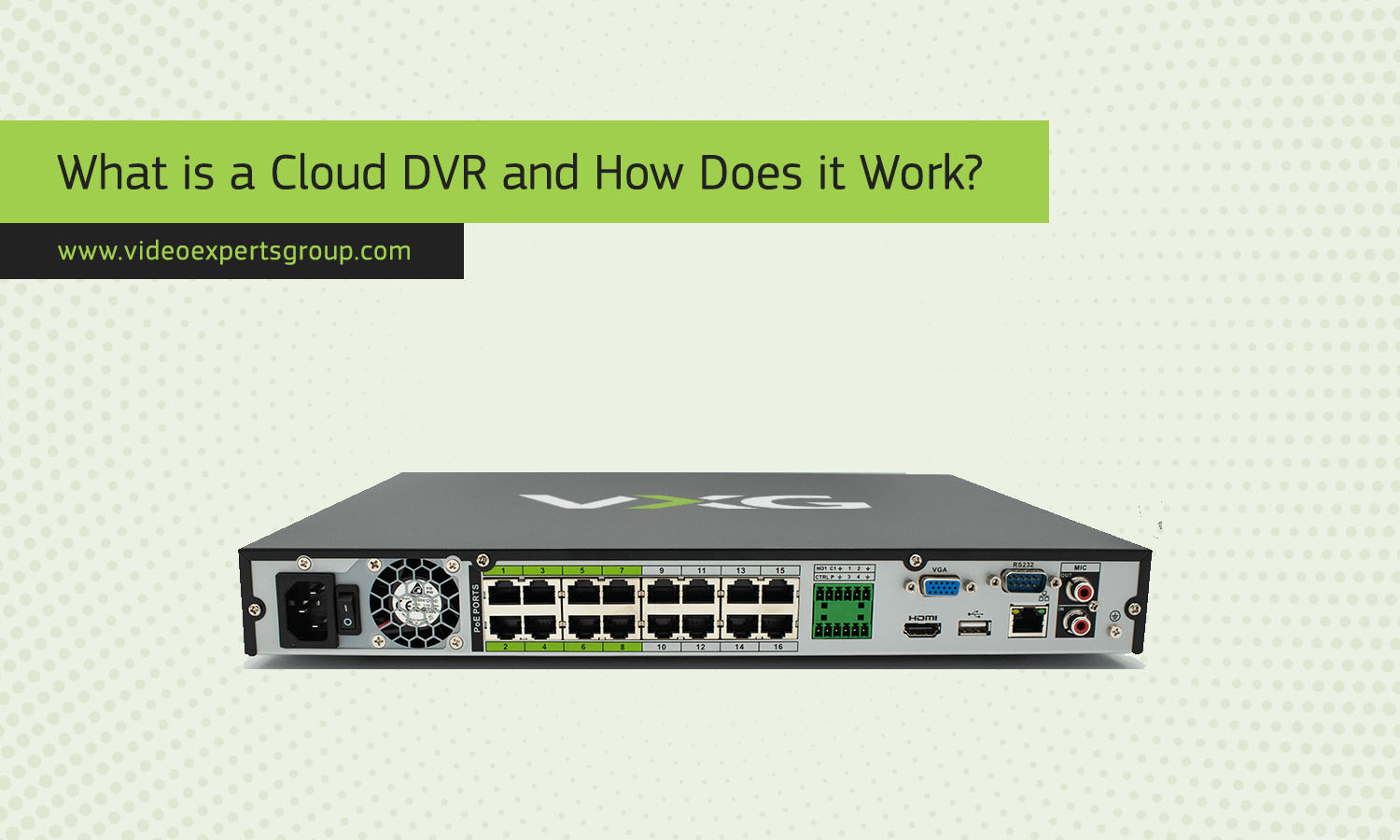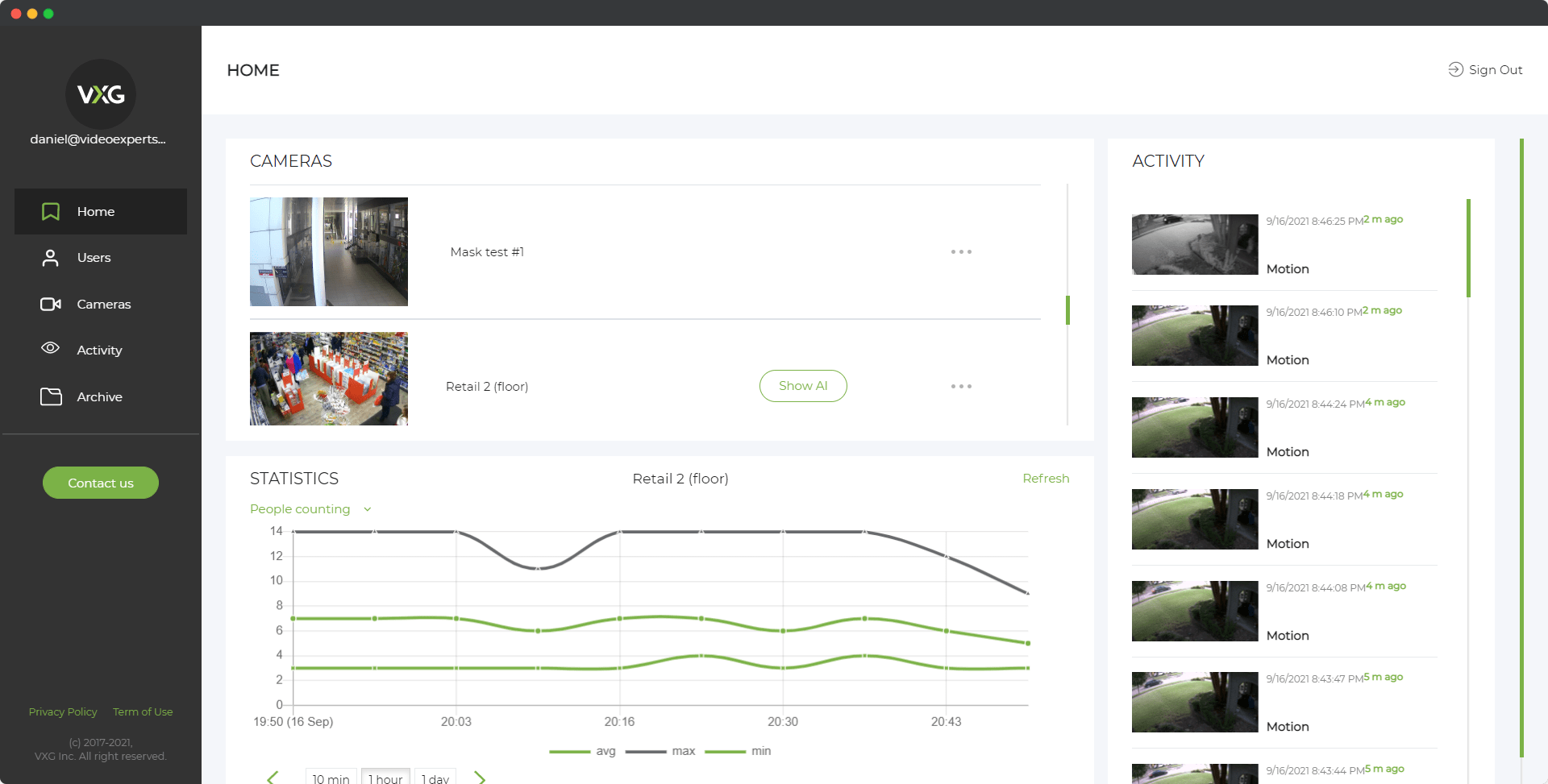Digital Video Recording systems offer a modern solution for storing and accessing surveillance footage securely over the internet. But what exactly is a Cloud DVR, and how does it function within the realm of CCTV?
What is a Cloud DVR?
A Cloud-based DVR, short for Cloud Digital Video Recorder, is a type of surveillance system that stores recorded video footage in the cloud rather than on physical hardware like a traditional DVR. It's like having a virtual video storage space on the internet where CCTV footage is securely saved.
How Does a Cloud DVR Work?
A Cloud-based DVR operates by leveraging an internet connection to transmit video data from security cameras to remote servers hosted in the cloud. This process typically involves the following steps:
- Recording: security cameras capture video footage of the monitored area, just like with a conventional DVR system.
- Encoding and Compression: Before transmission, the video data is encoded and compressed to reduce file size and optimize bandwidth usage. This ensures smooth transmission over the internet.
- Transmission to the Cloud: The compressed video data is then sent over the internet to remote servers hosted by the cloud DVR service provider. These servers securely store the footage in digital format.
- Storage and Accessibility: Once stored in the cloud, the surveillance footage becomes accessible from anywhere with an internet connection. Users can view, download, or manage the recordings through a web-based interface or dedicated applications provided by the cloud DVR service.
- Security: Cloud DVRs often employ encryption and other security measures to protect the stored footage from unauthorized access. This ensures the privacy and integrity of the surveillance data.
Cloud DVR vs Cloud NVR
While Cloud DVRs store video recordings in the cloud, Cloud Network Video Recorders (NVRs) handle both recording and storage functions within a local network infrastructure. The primary difference lies in where the recordings are stored and how they are accessed:
Cloud DVR: Records video footage locally before transmitting it to remote servers in the cloud for storage and access.
Cloud NVR: Handles recording and storage of video footage within a local network, with the option to access recordings remotely via the internet.
Both solutions offer remote access to surveillance footage, but the choice between Cloud DVR and Cloud NVR depends on factors such as storage preferences, network infrastructure, and scalability requirements.
Best Cloud DVRs
Several companies offer Cloud DVR solutions tailored for CCTV applications. Some popular options include:
- Amazon Web Services (AWS) Cloud Cam: Provides secure cloud storage and remote access for home and business surveillance systems.
- Google Nest Aware: Offers cloud-based storage and intelligent features for Nest security cameras.
- Arlo Smart: Provides cloud-based storage and advanced monitoring features for Arlo security cameras.
- Ring Protect: Offers cloud recording plans for Ring security cameras, allowing users to store and access footage remotely.
- Wyze Cam Plus: Provides affordable cloud storage options and advanced features for Wyze security cameras.
These are just a few examples of Cloud DVR solutions available on the market, each with its own features and pricing plans to suit different surveillance needs.
Cloud DVRs revolutionize CCTV systems by offering convenient remote access to surveillance footage via the internet. By leveraging cloud technology, these systems provide secure storage, accessibility, and flexibility for monitoring and managing video recordings from anywhere, anytime.
















